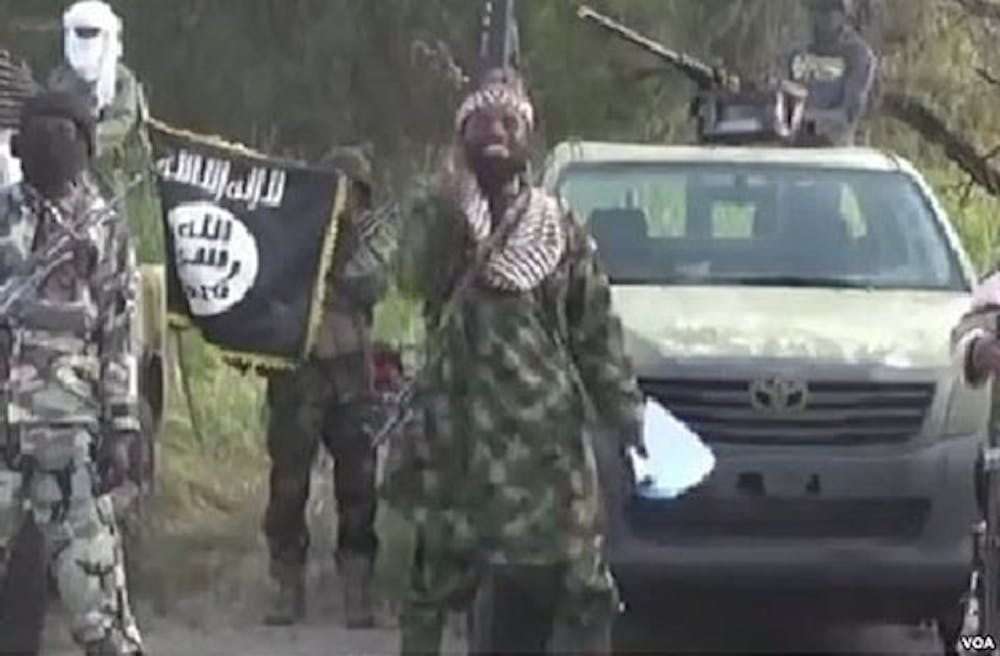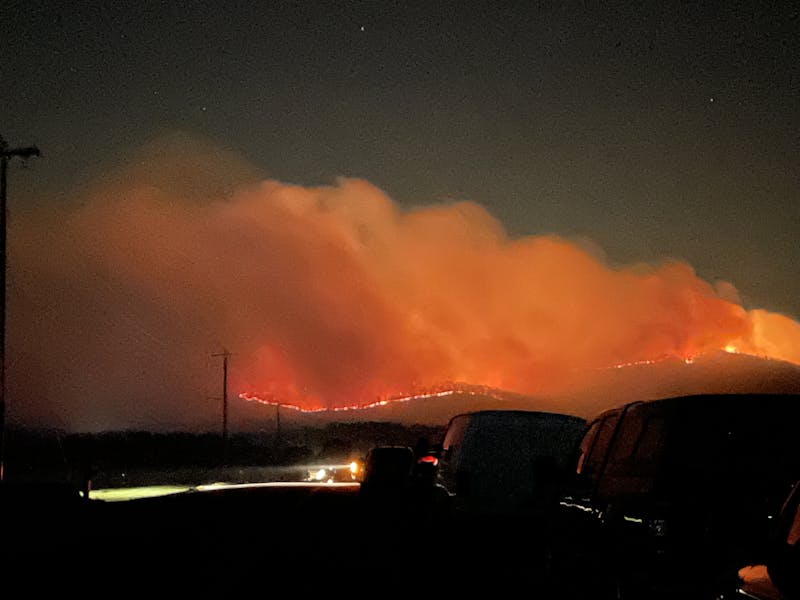“I dream of the realization of the unity of Africa, whereby its leaders combine in their efforts to solve the problems of this continent,” Nelson Mandela, former president of South Africa, said.
Mandela’s dream is far from a reality as Boko Haram, a radical Islamist army, rages its way through Nigeria.
According to the New York Times (NYT), at least 10,000 people died in the past six years and hundreds of thousands were displaced from their homes.
“We are very happy with what happened at the heart of France,” Abubakar Shekau, Boko Haram’s leader, said, referring to the Charlie Hebdo terrorists attacks that occurred in Paris earlier this month, according to Bloomberg.
Shekau later took responsibility for slaughtering 2,000 civilians and razing 3,700 buildings at Baga, a Nigerian town near the border of Cameroon, according to the New York Daily News.
“This is just the beginning of the killings,” Shekau said. “What you’ve just witnessed is a tip of the iceberg.”
Though the Nigerian military is struggling to combat its merciless enemy they successfully defended Maiduguri, the capital city of the region of Borno. The attack came this past Saturday night where a bloody battle ensued, according to the NYT. Small-arms fire and artillery bombardments struck the city of more than 2 million people until the early hours of Sunday morning.
“Certainly this is the most serious attack yet,” Kashim Shettima, the governor of Borno, said. “We faced a really existential threat.”
Before Boko Haram insurgents launched their attack, Nigerian President Goodluck Jonathan visited the city for his ongoing campaign for re-election. By the time Jonathan arrived in the city the local village of Kambari was scorched and more than a dozen people were killed.
“Everyone is at home, but there are the civilian vigilantes, the police and the military who are patrolling on the streets,” a local resident said, according to the BBC. The city was put under curfew, business closed and the streets cleared of civilian vehicles.
John Kerry, U.S. secretary of state, visited the port city of Lagos on Sunday to meet with Jonathan and Muhammadu Buhari, the incumbent’s political opponent. Kerry stressed the necessity of keeping the domestic peace between rival political groups, regardless of the outcome of the election, The Washington Post reported.
In 2011, roughly 800 people died due to riots from a disputed election. Some fear political upheaval while under threat of Boko Haram could have major consequences to the integrity of Nigeria.
“The fact is that one of the best ways to fight back against Boko Haram and similar groups is by protecting the peaceful, credible and transparent elections that are essential to any thriving democracy, and certainly essential to the largest democracy in Africa,” Kerry said.
“It’s imperative that these elections happen on time, on schedule, and that they are an improvement over past elections. They need to set a new standard for this democracy.”
Boko Haram, which translates into “western education is forbidden” in the Hausa language, according to BBC, previously referred to democracy as a religion.
The al-Qaeda inspired group, founded in 2002, launched attacks in 2009 to aid in the creation of the Islamic State. The group is not only responsible for killing and displacing thousands, but also abducted at least 200 female students, along with hundreds of other people.
Boko Haram and the Islamic State continue to defile Western ideals and draw international attention to their violence and military rampages.
While President Barack Obama paid respects to the murder of a Japanese citizen by the Islamic State, according to USA Today, he is also organizing an international conference on Feb. 18 to discuss fighting violent extremism, reported the NYT.





The Slate welcomes thoughtful discussion on all of our stories, but please keep comments civil and on-topic. Read our full guidelines here.